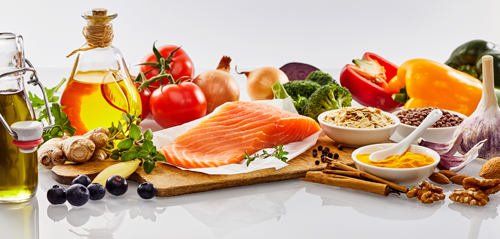By Shannon Brown
Consider Bioidentical Hormones
Bioidentical hormones have gotten a lot of attention recently. Instead of hormone medications, bioidentical hormones are an exact match to the hormones produced by a woman’s body.
Although there aren’t many long-term studies examining this treatment yet, it has been praised within the medical community eliminating some unpleasant side effects of typical hormone therapy, such as brain fog and low energy. Short-term studies have found they can reduce hot flashes and vaginal dryness.
There is a slightly increased risk of breast cancer with hormone use. However, some doctors believe that since bioidentical hormones are chemically different than hormone therapy drugs, they may not cause this same risk.
Measure Waist Circumference
Most research has found that menopause doesn’t cause weight gain, but rather, a redistribution of weight from other parts of the body to the abdomen. A recent study in the American Journal of Obstetrics and Gynecology confirmed this. Ananthan Ambikairajah, the lead study author, thinks this finding is important. “Central fat has been linked with dementia risk, and central fat is [also] linked with cardiovascular disease risk,” he said. Measuring your waist is a simple way to check your health. In general, a waist size of above 31 inches greatly increases your risk of chronic disease, and above 34.5 inches means a greatly increased risk.
Eat Nutritionally Dense Foods
As you age, your metabolism slows down and you need fewer calories, but still need the same amount of nutrients. Older adults sometimes even have trouble absorbing nutrients, due to issues such as low stomach acid. Focus on foods that have a high concentration of nutrients, aiming for a mix of fruits and vegetables, grains, low-fat dairy, lean protein, and a small amount of healthy fats.
Stay Social
While there are many advertisements for computer games to maintain your brain health, one of the best things you can do for your brain is to stay social. Social connections may help preserve your memory, and people who are isolated also tend to be more depressed, use more medications and are hospitalized more. Socializing at mealtimes is also a great strategy to maintain your weight. One study published in Public Health Nutrition found that the act of cooking meals at home, including planning, shopping and socializing while eating, led to increased odds of survival in elderly adults.
Maintain Muscle Mass
One of the most important changes that occurs in aging is the loss of muscle mass. Without a maintenance strategy, adults lose 3-5 percent of their body’s muscle mass every year after age 30. Maintaining muscle is crucial to keep your metabolism moving and keep your waist within a healthy range. Aim for two to four workouts per week, including a mix of resistance training, aerobic exercise and walking.
Older adults sometimes even have trouble absorbing nutrients, due to issues such as low stomach acid.




